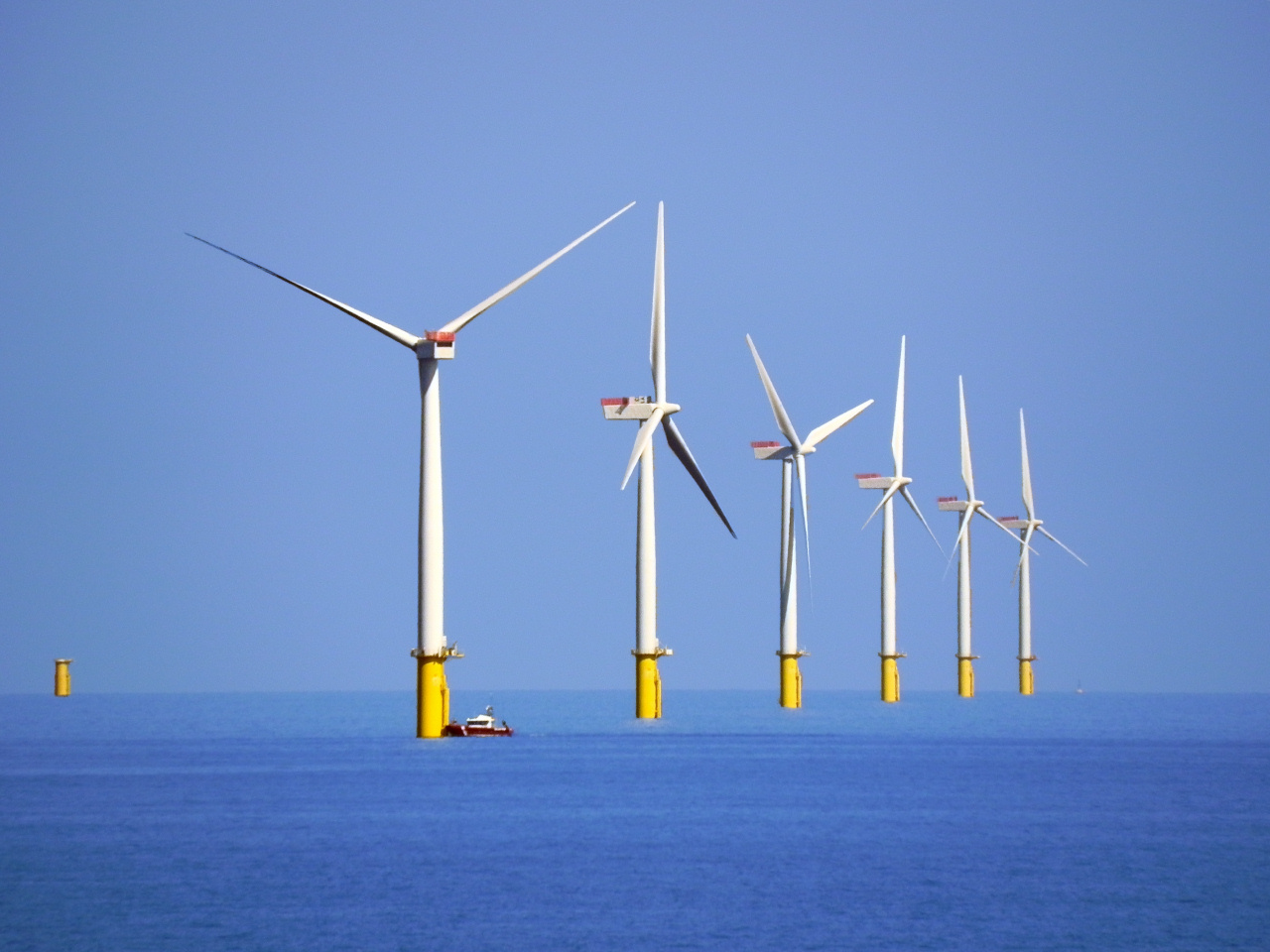
President Donald Trump may abandon US pledges to reduce carbon emissions, but global economic realities ensure he is unlikely to reverse the accelerating push to adopt cleaner forms of energy.
Around the world, coal-fired power plants are being shuttered as governments and private companies invest billions in wind turbines and solar farms.
Even in regions of the US where coal is plentiful, electric utilities are increasingly shifting to cheaper, cleaner-burning natural gas. In the absence of federal action to address climate change, some left-leaning states such as California and New York are moving ahead with ambitious clean-energy policies of their own.
Trump said on Twitter late Wednesday he will announce his decision on whether to pull the United States out of the Paris climate accord during a Rose Garden event Thursday afternoon. The Paris accord was negotiated by President Barack Obama in 2015. A White House official told The Associated Press on Wednesday that Trump is expected to withdraw from the deal, though aides cautioned he had not yet made a final decision.
Reports of the impending move by the American president triggered statements of support for the climate accord from scores of world leaders. At a meeting of the G7 in Sicily last week, only Trump refused to reaffirm their nations’ continuing support for the Paris deal, which was signed by nearly 200 countries.
“A US withdrawal from Paris will be a disappointment to the climate community, but it may also embolden other countries to fill the void left by the US and take on a greater leadership role,” said Glen Peters, a Norwegian scientist who tracks global carbon emissions. “The declines in US emissions in the last decade have largely happened without strong climate policies, and a withdrawal from the Paris Agreement may have minimal effect on US emissions but give a hit to international morale.”
Trump, a Republican who has claimed global warming is a hoax, has moved quickly since taking office to delay or block restrictions on burning of fossil fuels enacted by his predecessor that he claims are holding back economic growth. The president has pledged to reverse decades of decline in coal mining, which now accounts for fewer than 75,000 US jobs.
Almost every other industrialized economy in the world is moving in the opposite direction.
On April 30, Germany established a new national record for renewable energy use with 85 percent of all electricity produced in the county coming from renewable sources. That same month, Scotland was able to produce an electricity surplus from its wind turbines, producing 136 percent of the energy needed for its 3.3 million households.
The Chinese government canceled construction of more than 100 new coal-fired power plants earlier this year, announcing plans to invest at least $360 billion in green-energy projects by 2020. It is a building boom expected to create an estimated 13 million jobs.
Though it remains the largest global carbon emitter, China also leads the world in total installed solar and wind capacity. China generates about 20 percent of its electricity from renewable sources, compared to about 13 percent in the US.
“President Trump is ceding the future to the Germans, the Chinese, the Indians, and other nations rather than having the United States continue to lead the world on clean energy solutions,” said Sen. Ed Markey, D-Mass. “By creating the clean energy technologies here at home and then deploying them around the world, we can have job creation that is good for all creation.”
Coal is the dirtiest of fossil fuels, accounting for more than three-quarters of carbon emissions from U.S. power plants despite generating less than 40 percent of the nation’s electricity. Several of the country’s largest coal companies have sought bankruptcy protection in the last year, largely due to competition from natural gas made cheaper and more abundant by hydraulic fracturing.
As American utilities have turned away from coal, the nation has seen a corresponding decline in carbon emissions. Still, the United States remains the world’s second largest emitter of carbon dioxide. Scientists warn that any delay in weaning the country off fossil fuels could exacerbate the negative effects of climate change for the rest of the globe.
Carbon dioxide stays in the air for 100 years and about one-fifth of what’s accumulated in the atmosphere over the last century came from the United States, more than any other country.
“The US pulling out of Paris will not stop the fight against global warming, since almost all other countries are committed to it,” said Stefan Rahmstorf, a German climate researcher. “But it could delay it and any delay could be detrimental, as stopping global warming before critical tipping points are crossed is a race against the clock.”




